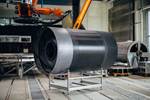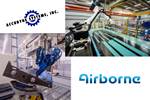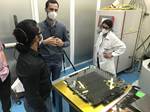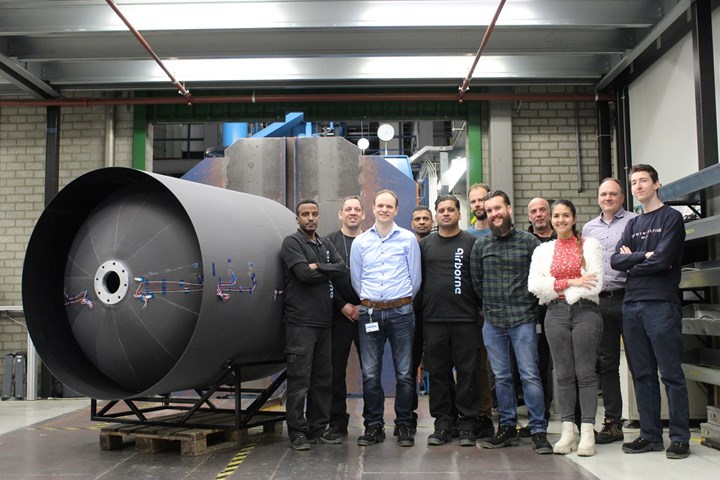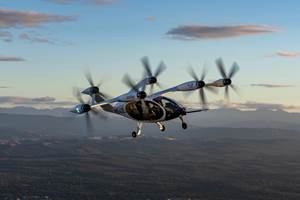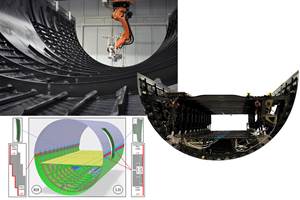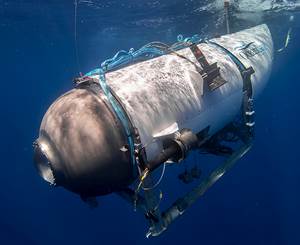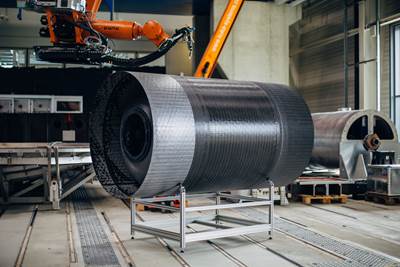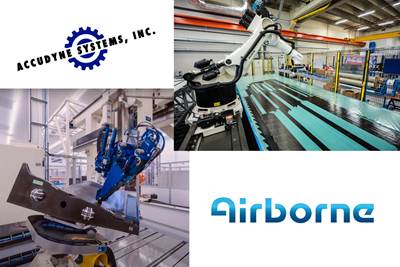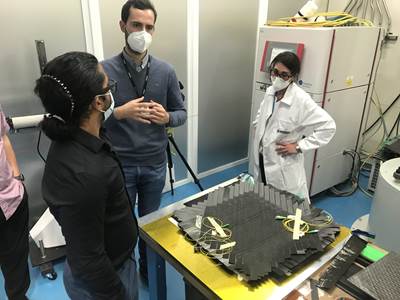Airborne delivers composite upper stage tank for EU ENVOL project
Nine-member consortium targets development of low-cost, green vertical orbital launcher with manufacture of an ultra-lightweight composite tank design in an automated manufacturing environment.
On a mission to secure independent access to space for small satellites, and enable reliable, timely and frequent launches, Europe has launched “European Newspace Vertical Orbital Launcher” (ENVOL), an EU Horizon 2020 project targeting the region’s first prime commercial competitive and green launch service. Composites company Airborne (The Hague, Netherlands) is one of nine industrial companies participating in the ENVOL project, and has recently reached a new milestone with the manufacture of a carbon fiber-reinforced epoxy upper stage tank using automated tape laying and automated fiber placement (ATL/AFP) technologies. Airborne says this tank is ready for internal pressure testing.
ENVOL’s main objective is to use a true New Space approach to offer low-cost, frequent and flexible access to space with small satellites (ranging between 100 to 500 kilograms) by 2024. The project, officially kicked off in March 2020, is running for 36 months on a €4 million budget, aided by Airborne, Nammo, GKN Aerospace, CT Engineering, GTD, SpaceTec Partners, ISIS, Evonik and Andoya Space. ENVOL is coordinated by Nammo, the Norwegian international aerospace and defense company that specializes in ammunition and rocket motors (learn more about ENVOL in sidebar below).
Development of the low-cost, green microlauncher system includes a tank for liquid hydrogen peroxide fuel, which will reportedly exhaust only water vapor. The challenge, however, is to develop a lightweight tank that can withstand the corrosiveness of the hydrogen peroxide. Key targets for the ENVOL consortium to achieve this goal is a focus on automation, to reduce manufacturing costs and ramp up production volume.
The ENVOL project is the successor to the EU SMILE project, in which a European industrial consortium developed an affordable microlauncher.
Airborne’s contribution to the project includes the development of a composite upper stage tank structure with automation technology, based on automated laminating with Airborne’ state-of-the-art ATL technology. To achieve the current prototype tank design, the company used a single 150-millimeter-wide tape, which, while unconventional for the aerospace market (which typically uses many thin prepreg tapes using AFP), is said to significantly saves manufacturing cost at a much lower CAPEX investment level.
Airborne will work in close collaboration with CT Engineering, the French engineering company responsible for the design of the upper tank structure of the launcher. In the engineering phase, both partners will combine automation expertise and design knowledge to achieve a design-for-automation, which is required to make affordable structures at the required production rate.
The upper stage tank will be assessed for suitability, which will be performed in collaboration with SAM|XL (Delft, Netherlands).
“What makes the ENVOL consortium unique is that each partner adds complementary capabilities, the sum of which will be able to create a competitive European microlauncher system,” says Sandor Woldendorp, business unit director at Airborne and part of the ENVOL project. “Our affordable composites proposition is already drawing a lot of interest from several microlauncher initiatives around the globe. We look forward to contributing to the success of these launchers and thereby supporting the further growth of the New Space smallsat market.”
The ENVOL project is the successor to the EU SMILE project, in which a European industrial consortium developed an affordable microlauncher. Airborne contributed by developing a structural concept of the load-bearing structures, together with new and innovative automation technology to manufacture the structures. To validate these new technologies, a demonstrator was manufactured. Like it did for SMILE, Airborne continues to deploy its expertise in automated laminating solutions, enabling efficient layup of tailored thermoset prepreg preforms by combining tape laying, cutting, and pick and place in a single robot cell.
Airborne is involved in several programs for affordable and ultra-lightweight launcher structures. An example besides ENVOL is the isogrid-based interstages that are being developed with design partner ATG Europe (Noordwijk, Netherlands), with its first customer, Rocket Factory Augsburg (Germany).
Related Content
Plant tour: Teijin Carbon America Inc., Greenwood, S.C., U.S.
In 2018, Teijin broke ground on a facility that is reportedly the largest capacity carbon fiber line currently in existence. The line has been fully functional for nearly two years and has plenty of room for expansion.
Read MorePlant tour: Joby Aviation, Marina, Calif., U.S.
As the advanced air mobility market begins to take shape, market leader Joby Aviation works to industrialize composites manufacturing for its first-generation, composites-intensive, all-electric air taxi.
Read MoreManufacturing the MFFD thermoplastic composite fuselage
Demonstrator’s upper, lower shells and assembly prove materials and new processes for lighter, cheaper and more sustainable high-rate future aircraft.
Read MoreThe lessons behind OceanGate
Carbon fiber composites faced much criticism in the wake of the OceanGate submersible accident. CW’s publisher Jeff Sloan explains that it’s not that simple.
Read MoreRead Next
CFRTP upper stage propellant tank
PROCOMP uses in-situ consolidation AFP and ultrasonic welding to demonstrate lightweight, novel tank design.
Read MoreAirborne, Accudyne partner to provide automated composites solutions worldwide
The two companies have signed an MOA to collaborate on further development of digital automation systems for composites manufacturing in aerospace, renewable energy, future mobility and more.
Read MoreCAELESTIS R&D project explores predictive design, manufacturing for aerospace
Over 42 months, 11 partners will work together to develop an end-to-end digital thread to effectively enable dataflow across the entire aircraft value chain, accelerating the optimization of disruptive aircraft and engine configurations.
Read More

